C. S. Lewis’ Perelandra is the second book in what is commonly called “The Space Trilogy” with Out of the Silent Planet and That Hideous Strength being the first and final books, respectively. I recently finished my second reread of Perelandra, so I want to do something similar to my previous post comparing E. R. Burrough’s A Princess of Mars with Out of the Silent Planet. This time, I will compare A Princess with Perelandra as the similarities are very interesting to me.
As with my first post, I am not going to argue whether or not Lewis was influenced by Burroughs. It is certainly possible that Lewis was, but it is not my desire to prove or disprove the connection. Both books have similar themes, and I simply want to muse on the details.
Andrew Snyder and I discussed Perelandra on I Might Believe in Faeries yesterday and the episode will come out on July 15, 2024.
Nudity vs Nakedness
One very obvious similarity between both A Princess and Perelandra is that both male and female protagonists are nude. While the words “nude” and “naked” are synonymous in common speech, I deliberately used the word“nude” here because there is a difference when it comes to artistic depictions.
In a 2014 article from the Catholic News Agency, Alice von Hildebrand states the following:
Let us think of the dying slave of Michelangelo in the Louvre in Paris. When I saw it for the first time, I was awe-struck by its nobility: every single part of its body reflects the loving genius of the Creator. Its dignity is so overwhelming that one has the feeling that it just came out of the hands of the Divine Artist. Indeed, Adam and Eve were created nude. It awakens in us a feeling of reverence not only for the other sex, but also for one’s own body: it is noble, it calls for respect.
They [Adam and Eve] both realized they were “naked”, - an illegitimate uncovering of one’s body awakening in the other sex a violent craving for sexual satisfaction. Adam no longer saw Eve as his sweet wife, a person united to him by the bonds of spousal love: she had become a temptress. Now they realized they were stripped of the white garment of innocence, and perceiving their misery, they were rightfully ashamed.
Why is it crucial to distinguish between “nudity” and “nakedness?” Today some are blind to the abyss separating them. The former refers to the beauty of the human body as coming out of God’s hands and combining beauty and purity. The second is a caricature of the same body wounded by lust.
Roger Scruton says the difference between the two lies in the posture of the body and the face of the figure being depicted. These are quotes from Scruton that I pulled form this review of his 2009 book, Beauty:
Even in the ‘Venus of Urbino’ – that most provocative of Titian’s female nudes – the lady draws our eyes to her face, which tells us that this body is on offer only in the way that the woman herself is on offer, to the lover who can honestly meet her gaze. To all others the body is out of bounds, being the intimate property of the gaze that looks out from it: not a body but an embodiment … The face individualizes the body, possesses it in the name of freedom, and condemns every covetous glance as a violation. The Titian nude neither provokes nor excites, but retains a detached serenity – the serenity of a person, whose thoughts and desires are not ours but hers.
Anne Hollander has written of the extent to which the nude, in our tradition, is not naked but unclothed: it is a body marked by the shapes and materials of its normal covering. In Titian the body is at rest just as it would be if it were protected from our gaze by a veil of clothing: it is a body under invisible clothes. We no more detach it from the face or the personality than we would detach the body of a woman fully dressed. And by painting the body in this way Titian overcomes its eerie quality – its nature as forbidden fruit.
In short, nudity implies the dignity of the person depicted, both shone in the face and their posture. Nakedness implies shame and lust. In the next sections, I will explore how both Burroughs and Lewis use nudity as a way to highlight death and rebirth in their male protagonists and dignity and nobility in their female characters in both A Princess and Perelandra.
If you want to view the paintings Scruton was referencing, there can be found here in another review of Beauty. Not everyone can handle looking at nude paintings, so I did not want to burden anyone’s consciences in this post. It is difficult for me as well. However, I find it helpful to see what Scruton is talking about when he refers to faces and postures.
Nudity as Rebirth - Ransom and Carter
The men, Elwin Ransom and John Carter, are both transported nude to Perelandra (Venus) and Mars, respectively. Interestingly, both men describe themselves as naked several times, but their overall lack of shame (eventually in Ransom’s case), place them both in the “nude” category. Both men act as if they were clothed and Ransom frequently forgets that he is not. The nudity is at a distance from the reader as it falls into the background of each story.
Both men experience the process of transportation as a sort of death and rebirth. In the very beginning of A Princess, John Carter’s soul seems to be separated from his clothed body, the definition of death, in a cave in Arizona. Carter experiences a sort of death, but the womb-like structure of the cave, as well as the feminine presence of the Moon, signal that this is both death and rebirth.
And then the moonlight flooded the cave, and there before me lay my own body as it had been lying all these hours, with the eyes staring toward the open ledge and the hands resting limply upon the ground. I looked first at my lifeless clay there upon the floor of the cave and then down at myself in utter bewilderment; for there I lay clothed, and yet here I stood but naked as at the minute of my birth.
The transition had been so sudden and so unexpected that it left me for a moment forgetful of aught else than my strange metamorphosis. My first thought was, is this then death! Have I indeed passed over forever into that other life!
In Out of the Silent Plant, Ransom’s travel to Malacandra (Mars) took place in a man-made space craft. He was kidnapped by two “bent” men, Weston and Devine, who wanted to offer Ransom as a human sacrifice to the inhabitants of the red planet. There is a moment on the space ship where Ransom is nude:
Stretched naked on his bed, a second Danae, he found it night by night more difficult to disbelieve in old astrology: almost he felt, wholly he imagined, “sweet influence” pouring or even stabbing into his surrendered body.
For those who don’t know, Danae was locked away in a chamber by her father, King Acrisius because it was prophesied that her son would lead to the king’s death. She is impregnated by Zeus, who enters the chamber in the form of a golden light. Perseus is the fruit of the intercourse between Zeus and Danae. Acrisius locked both Danae and the infant Perseus in a coffin (death) and sent them out to sea (rebirth). Perseus is the hero who eventually slays Medusa.
With Danae’s story in mind, we can view Ransom’s mode of transportation to Perelandra in a different light. Ransom’s mission is to travel to Perelandra because the Enemy is plotting something out there and like Perseus, he will have to fight it. His mode of travel is to be transported in a coffin/casket made out of something resembling ice.
What it is like to travel in a celestial coffin was a thing that Ransom never described. He said he couldn't. But odd hints about that journey have come out at one time or another when he was talking of quite different matters.
According to his own account he was not what we call conscious, and yet at the same time the experience was a very positive one with a quality of its own. On one occasion, someone had been talking about "seeing life" in the popular sense of knocking about the world and getting to know people, and B. who was present (and who is an Anthroposophist) said something I can't quite remember about "seeing life" in a very different sense. I think he was referring to some system of meditation which claimed to make "the form of Life itself" visible to the inner eye. At any rate Ransom let himself in for a long cross-examination by failing to conceal the fact that he attached some very definite idea to this.
As Ransom enters the atmosphere of Perelandra, his casket melts away, and he splashes down into the sea. The sea in this instance is a source of joy for Ransom, and it is also reminiscent of a womb like the cave in A Princess. However, Ransom cannot swim in the sea forever, and must eventually make land. The sea births Ransom with references to dark red tubes, bladders, and strings. Ransom has been reborn.
But here was another, not thirty yards away and bearing down on him. He struck out towards it, noticing as he did so how sore and feeble his arms were and feeling his first thrill of true fear. As he approached it he saw that it ended in a fringe of undoubtedly vegetable matter; it trailed, in fact, a dark red skirt of tubes and strings and bladders. He grabbed at them and found he was not yet near enough. He began swimming desperately, for the thing was gliding past him at some ten miles an hour. He grabbed again and got a handful of whip-like red strings, but they pulled out of his hand and almost cut him. Then he thrust himself right in among them, snatching wildly straight before him. For one second he was in a kind of vegetable broth of gurgling tubes and exploding bladders; next moment his hands caught something firmer ahead, something almost like very soft wood. Then, with the breath nearly knocked out of him and a bruised knee, he found himself lying face downward on a resistant surface. He pulled himself an inch or so further. Yes--there was no doubt now; one did not go through; it was something one could lie on.
It seems that he must have remained lying on his face, doing nothing and thinking nothing for a very long time.
When both Carter and Ransom land on their respective planets, both men need to learn how to walk again, like babies. Both men are also surrounded by soft vegetation, which cushions their falls like padded floors in a nursery. Both men also reference crawling or creeping to intially get from place to place before learning how to walk again as men.
John Carter on Mars:
I found myself lying prone upon a bed of yellowish, mosslike vegetation which stretched around me in all directions for interminable miles. I seemed to be lying in a deep, circular basin, along the outer verge of which I could distinguish the irregularities of low hills.
It was midday, the sun was shining full upon me and the heat of it was rather intense upon my naked body, yet no greater than would have been true under similar conditions on an Arizona desert…
Springing to my feet I received my first Martian surprise, for the effort, which on Earth would have brought me standing upright, carried me into the Martian air to the height of about three yards. I alighted softly upon the ground, however, without appreciable shock or jar. Now commenced a series of evolutions which even then seemed ludicrous in the extreme. I found that I must learn to walk all over again, as the muscular exertion which carried me easily and safely upon Earth played strange antics with me upon Mars.
Instead of progressing in a sane and dignified manner, my attempts to walk resulted in a variety of hops which took me clear of the ground a couple of feet at each step and landed me sprawling upon my face or back at the end of each second or third hop. My muscles, perfectly attuned and accustomed to the force of gravity on Earth, played the mischief with me in attempting for the first time to cope with the lesser gravitation and lower air pressure on Mars.
Ransom on Venus:
He rose to take a few paces inland--and downhill, as it was at the moment of his rising--and immediately found himself flung down on his face, unhurt because of the softness of the weed. He scrambled to his feet--saw that he now had a steep slope to ascend--and fell a second time. A blessed relaxation of the strain in which he had been living since his arrival dissolved him into weak laughter. He rolled to and fro on the soft fragrant surface in a real schoolboy fit of the giggles.
This passed. And then for the next hour or two he was teaching himself to walk. It was much harder than getting your sea-legs on a ship, for whatever the sea is doing the deck of the ship remains a plane. But this was like learning to walk on water itself. It took him several hours to get a hundred yards away from the edge, or coast, of the floating island; and he was proud when he could go five paces without a fall, arms outstretched, knees bent in readiness for sudden change of balance, his whole body swaying and tense like that of one who is learning to walk the tight-rope. Perhaps he would have learned more quickly if his falls had not been so soft, if it had not been so pleasant, having fallen, to lie still and gaze at the golden roof and hear the endless soothing noise of the water and breathe in the curiously delightful smell of the herbage.
Throughout Perelandra, Ransom experiences more than one death and rebirth. Similarly, John Carter references the fact that he died twice in the course of A Princess in the very first paragraph! This is not the place for me to explore those deaths and rebirths in great detail as I need to move on to the next section.
Nudity as Dignity
The women, as with the men in both stories, are nude. Not only that, both women, Dejah Thoris and The Green Lady (Tinidril) are royalty, although at different levels in a hierarchy. While Dejah is a princess of Helium, Tinidril is the future Mother and Queen of all Perelandrians, essentially a new, yet different, Eve. The nature of the relationships between the four characters is different as well. Carter and Dejah eventually marry, while Ransom becomes something of a brother to Tinidril. These important differences aside, the initial meetings of both Dejah and Carter and Ransom and Tinidril are similar.
Both men see their respective royal ladies first and from up high. Both men mistakenly believe they are seeing something monstrous or strange before the image resolves into the form of a woman. Ransom thinks he is seeing a greenish growth on a large fish’s back while standing on a floating island on the crest of a large wave. Then, he realizes that the green column is a person, although he thinks it is a man.
There was something queer about the leader, some sort of projection or malformation on the back…They had almost reached that other island now, and the birds were all descending to meet them at its edge. There was the leader again, with his hump or pillar on his back…For at the very moment when the leading fish had reached that neighbouring land, the land had risen up on a wave between him and the sky; and he had seen, in perfect and unmistakable silhouette, the thing on the fish's back reveal itself as a human form--a human form which stepped ashore, turned with a slight inclination of its body towards the fish and then vanished from sight as the whole island slid over the shoulder of the billow…
And there was the stranger, now on the very shore, face to face with him. For one second the alien eyes looked at his full of love and welcome. Then the whole face changed: a shock as of disappointment and astonishment passed over it. Ransom realised, not without a disappointment of his own, that he had been mistaken for someone else. The running, the waving, the shouts, had not been intended for him. And the green man was not a man at all, but a woman.
Ransom realizes that he too was misidentified. She thinks that he is her husband, King Tor. Her face, full of love turns to disappointed as she discovers that Ransom is not the King. In fact, Tinidril’s disappointed turns to laughter, though without scorn, as she is greatly amused by Ransom’s comical “piebald” appearance.
What overwhelmed him was not in the least the fact that she, like himself, was totally naked. Embarrassment and desire were both a thousand miles away from his experience: and if he was a little ashamed of his own body, that was a shame which had nothing to do with difference of sex and turned only on the fact that he knew his body to be a little ugly and a little ridiculous. Still less was her colour a source of horror to him. In her own world that green was beautiful and fitting; it was his pasty white and angry sunburn which were the monstrosity.
Ransom goes on to describe her:
She was standing a few yards away, motionless but not apparently disengaged--doing something with her mind, perhaps even with her muscles, that he did not understand. It was the first time he had looked steadily at her, himself unobserved, and she seemed more strange to him than before. There was no category in the terrestrial mind which would fit her. Opposites met in her and were fused in a fashion for which we have no images. One way of putting it would be to say that neither our sacred nor our profane art could make her portrait. Beautiful, naked, shameless, young--she was obviously a goddess: but then the face, the face so calm that it escaped insipidity by the very concentration of its mildness, the face that was like the sudden coldness and stillness of a church when we enter it from a hot street--that made her a Madonna. The alert, inner silence which looked out from those eyes overawed him; yet at any moment she might laugh like a child, or run like Artemis or dance like a Mænad.
Carter also spies his lady from up high. The Green Martians shoot down Dejah’s research vessel and capture her as the sole survivor. He can see that two Green Martians are carrying something between them and he mistakes her for some other Martian horror.
After making her fast, they swarmed the sides and searched the vessel from stem to stern. I could see them examining the dead sailors, evidently for signs of life, and presently a party of them appeared from below dragging a little figure among them. The creature was considerably less than half as tall as the green Martian warriors, and from my balcony I could see that it walked erect upon two legs and surmised that it was some new and strange Martian monstrosity with which I had not as yet become acquainted.
As with Ransom, Carter discovers that the “monstrosity” was a beautiful woman, Dejah Thoris:
And the sight which met my eyes was that of a slender, girlish figure, similar in every detail to the earthly women of my past life. She did not see me at first, but just as she was disappearing through the portal of the building which was to be her prison she turned, and her eyes met mine. Her face was oval and beautiful in the extreme, her every feature was finely chiseled and exquisite, her eyes large and lustrous and her head surmounted by a mass of coal black, waving hair, caught loosely into a strange yet becoming coiffure. Her skin was of a light reddish copper color, against which the crimson glow of her cheeks and the ruby of her beautifully molded lips shone with a strangely enhancing effect.
She was as destitute of clothes as the green Martians who accompanied her; indeed, save for her highly wrought ornaments she was entirely naked, nor could any apparel have enhanced the beauty of her perfect and symmetrical figure.
When Dejah sees Carter, she mistakes him for a companion who may protect her from the Green Martians. When she realizes that he in not one of her people, her hope turns to contempt as she believes Carter is in league with her enemies. Carter, like Ransom, is entirely ignorant of all of these things at first and cannot help but ostracize themselves from their female companions.
As her gaze rested on me her eyes opened wide in astonishment, and she made a little sign with her free hand; a sign which I did not, of course, understand. Just a moment we gazed upon each other, and then the look of hope and renewed courage which had glorified her face as she discovered me, faded into one of utter dejection, mingled with loathing and contempt. I realized I had not answered her signal, and ignorant as I was of Martian customs, I intuitively felt that she had made an appeal for succor and protection which my unfortunate ignorance had prevented me from answering. And then she was dragged out of my sight into the depths of the deserted edifice.
As I mentioned in the beginning of this post, the nude figure has dignity while the naked one does not. This has to do with both the face and the posture of the figure in question. Both men focus almost exclusively on the faces of their green and red ladies. By having Carter and Ransom describe the faces and bearings of the nude women, Lewis and Burroughs are signaling to the reader that the women are not sex-objects, but human beings with immense dignity and nobility.
Weston’s Clothed Nakedness
The final section of this essay will be about Weston’s clothing in Perelandra. Weston is the villain in the story who begins the trilogy as a pompous atheist and imperialist in Out of the Silent Planet to becoming possessed by a demon in Perelandra. He, as the demonic Un-Man, is the reason Ransom is present on Venus. Weston is also the only clothed character on Perelandra and thinks that Ransom is making love to Tinidril, the “native girl” because both are naked. Weston does view them as nude.
“Allow me to tell you that I consider the seduction of a native girl as an almost equally unfortunate way of introducing civilisation to a new planet."
"Seduction?" said Ransom. "Oh, I see. You thought I was making love to her."
"When I find a naked civilised man embracing a naked savage woman in a solitary place, that is the name I give to it."
"I wasn't embracing her," said Ransom dully, for the whole business of defending himself on this score seemed at that moment a mere weariness of the spirit. "And no one wears clothes here. But what does it matter? Get on with the job that brings you to Perelandra."
"You ask me to believe that you have been living here with that woman under these conditions in a state of sexless innocence?"
"Oh, sexless!" said Ransom disgustedly. "All right, if you like. It's about as good a description of living in Perelandra as it would be to say that a man had forgotten water because Niagara Falls didn't immediately give him the idea of making it into cups of tea. But you're right enough if you mean that I have had no more thought of desiring her than--than . . ." Comparisons failed him and his voice died.
After Weston gives himself over the demonic spirit he brought along with him, he begins to tempt Tinidri with Ransom as both observer and debate partner. Ransom also begins to refer to the possessed creature as the “body of Weston” because evil spirit has turned Weston into a mere object or tool for its evil purposes. Both intellect and body are weapons to be used, with no inherent dignity at all. The clothes on the body of Weston become something obscene and strange, clinging wet and sodden in the rain. When Tinidril is away, the Un-Man has no use for intellect and turns to pestering Ransom like a school bully.
With Ransom himself it had innumerable games to play. It had a whole repertory of obscenities to perform with its own--or rather with Weston's--body: and the mere silliness of them was almost worse than the dirtiness.
Later on, the Un-Man dresses itself and Tinidri in beautiful, feathery robes made by killing many of the birds on Perelandra. Tinidril asks Ransom if the clothes make her more beautiful. Ransom is appalled by this, but is not sure how to respond.
"Do you think we are more beautiful?" said the Lady, interrupting his thoughts.
"No," said Ransom; and then, correcting himself, "I don't know." It was, indeed, not easy to reply. The Un-man, now that Weston's prosaic shirt and shorts were concealed, looked a more exotic and therefore a more imaginatively, less squalidly, hideous figure. As for the Lady--that she looked in some way worse was not doubtful. Yet there is a plainness in nudity--as we speak of "plain" bread. A sort of richness, a flamboyancy, a concession, as it were, to lower conceptions of the beautiful, had come with the purple robe. For the first (and last) time she appeared to him at that moment as a woman whom an earth-born man might conceivably love. And this was intolerable. The ghastly inappropriateness of the idea had, all in one moment, stolen something from the colours of the landscape and the scent of the flowers.
At first, Ransom believes the Un-Man is only teaching her female vanity, but the true purpose of the clothing is to awaken in Tinidril a “the far more perilous image of her great soul. The external and, as it were, dramatic conception of the self was the enemy's true aim. He was making her mind a theatre in which that phantom self should hold the stage. He had already written the play.” The Un-Man’s purpose was not to teach her about her dignity, but to give her an elevated sense of herself, and to teach her pride.
Weston, the Un-Man, is naked, although he wears clothing the entire time. The Un-Man is shameful, obscene and treats both body and soul as objects and weapons. Dejah Thoris, Tinidril, Elwin Ransom, and John Carter are all nude but they have inherent dignity due to their portrayals by their respective authors. I highly recommend both A Princess of Mars and Perelandra.

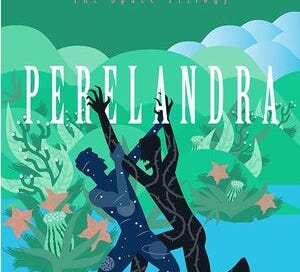


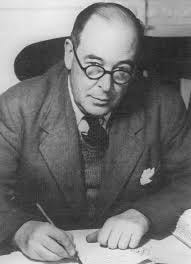
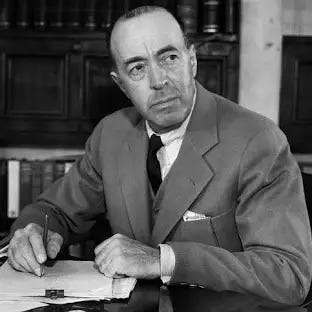
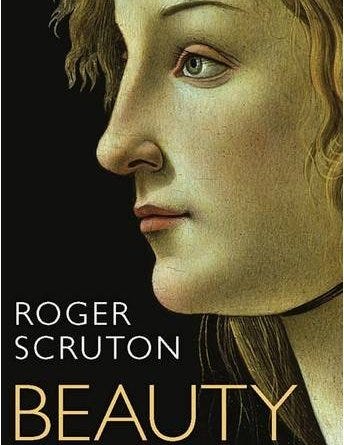
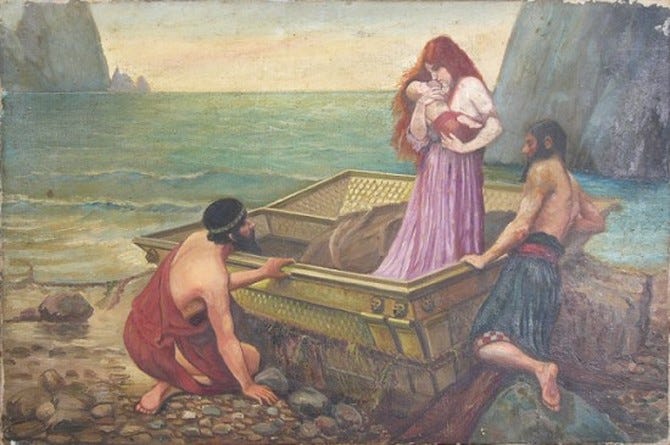

I still remember the day near the beginning of my journey away from habitual lust when I was walking through the streets of Florence and found a street artist with a nude for sale. It struck me that my initial response to seeing it was not lustful or desirous, it was simple, and much more akin to a wordless appreciation of the woman as a beautiful creation of God. It really is entirely different, even though the lustful man can never understand that.
Good review. I've read both books, ages ago. This brings them together into life in a new way, which I'd not have done.